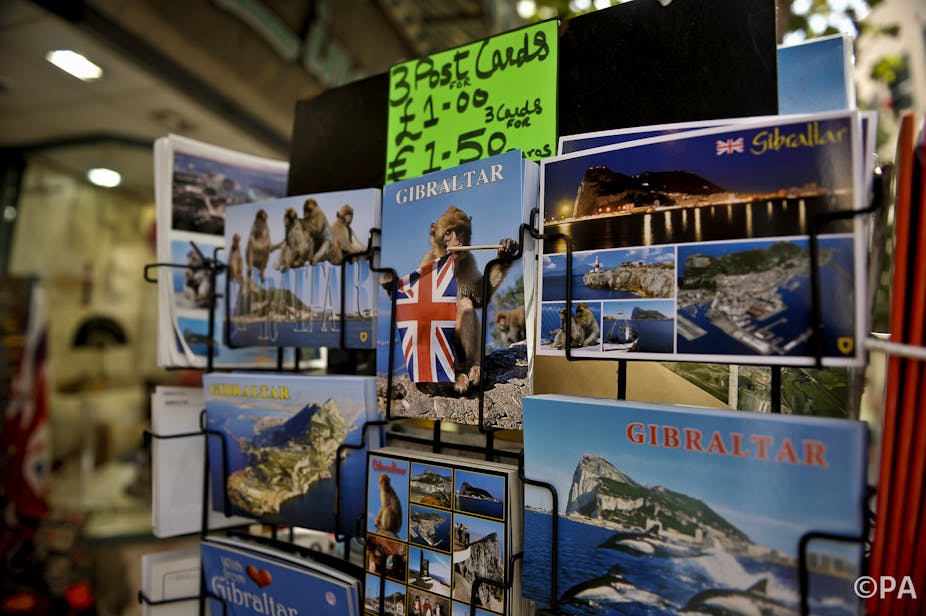Whether it’s arguments over delays at the border or concrete blocks dumped in the sea, Gibraltar has been causing the UK and Spain lots of grief recently.
It has gathered an awful lot of attention for a 2.6 sq mile territory that is home to fewer than 30,000 people. But to look at the Rock like this is to do it a disservice. Its days as a military outpost are gone, and Gibraltar’s economy is booming. The “business model” that has brought this success is deeply rooted in recent history.
In 1970s, Gibraltar was a largely service-based economy with a heavy reliance upon the UK Ministry of Defence (MOD) and the public sector. The MOD was the hub of the economy, and economic well-being was very much dependent upon decisions made in Westminster. Defence spending and spending by military households together accounted for more than a third of the economy. Adding to the military feel, the frontier with Spain at La Linea was closed and Gibraltar was operating as a siege economy. Even something as basic as water was shipped in on tankers to supplement rainfall gathered from catchments.
The situation today could not be in greater contrast. The Gibraltar of 2013 is a service-based economy with a high proportion of highly qualified professionals. The public sector and MOD are now responsible for less than 11% of the economy.
Necessary reforms
This transformation came about out of necessity. When the UK government closed Gibraltar’s major dockyard in 1984, it risked unbalancing the local economy, creating major unemployment and as a consequence destabilising the government of Gibraltar. In the years since the closure of the dockyard, other military operations were curtailed such as the closure of the Royal Naval Hospital in 2008.
To many economies, the disappearance of a dockyard and hospital would be locally difficult but nationally insignificant. But everything in Gibraltar is “national” because of its small size. These were major economic shocks, not only in terms of the lost income and employment and the political messages that were being sent out but in terms of the long-term sustainability of what is, in effect, a very small, vulnerable economy. To survive these shocks Gibraltar needed to be innovative, nimble and above all resolute. It was all of these.
Abrir la frontera
The reopening of the frontier with Spain in 1985 was timely and provided two important ingredients for the future of Gibraltar’s economy: a major increase in the level of consumer demand and the availability of a willing and able workforce. Spaniards replaced Moroccans in the workforce and this created the opportunity for economic expansion without the constraints of accommodation and the social impacts this generated.
The privatisation of the dockyard was not a huge success. In spite of Gibraltar’s geographical advantages, it was a difficult time for ship repairers to compete on the global stage – the Far East was just too competitive.
Troubles at the dockyard, reduced MOD dependence and the opening of the frontier led to a period of flux and readjustment. But the siege economy had instilled in local businesses a resilience that would be hard to match anywhere else in Europe.
Good economies come in small packages
Modern Gibraltar is still a service-based economy (its human resources and location are its only real assets) but it is a white collar service-based economy.
Because Gibraltar is so small it is vulnerable to external shocks, but this smallness also makes it very fleet of foot and it can quickly take up opportunities provided by market conditions. Therefore we have seen the Gibraltar economy weather the economic storms since 2008 and this has amplified the gap between those who work on the Rock and those who earn their living in the surrounding Spanish region, Campo de Gibraltar.
Gibraltar does not survive because of its tax haven status – its financial regulations and commitments to transparency means that the OECD does not consider Gibraltar to be a “tax haven”.
It does have a strong financial service sector (7% of total employment) but one that operates efficiently and on the basis of strong regulation. The construction industry has also been a major aspect of the economy from the time that Gibraltar started its land reclamation programme.
It is also the home of a large number of online gaming companies such as BWIN, Victor Chandler and William Hill (accounting for 10% of total employment) which creates well over a thousand jobs on the Spanish side of the frontier.
When the 2009 impact study of Gibraltar on the Campo was undertaken, the economic effects could be felt many kilometres beyond La Linea. Spain has an abundance of land and human resources, and Gibraltar has the industry. Both countries benefit from their interaction.
If the Rock was put under siege circumstances again it would survive, but it would find it difficult to prosper. However, the economic and political damage to the Campo de Gibraltar would likely be far worse. Putting aside the cultural and social dimensions of the Gibraltar issue, continued hostilities are in no one’s economic interests.

